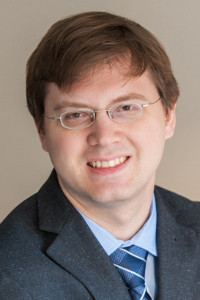The Minnesota NeuroSpin Initiative is pleased to invite you to watch a prerecorded session with UMN Professor Alexander Opitz. On January 19, Prof. Opitz will discuss his recent work related to:
ECE Using electric fields to control brain activity
Neural oscillations reflect and organize brain functions. Non-invasive Brain Stimulation methods such as Transcranial Alternating Current stimulation (TACS) and Transcranial Magnetic Stimulation (TMS) use electric fields to control brain activity. In this talk I will present our recent research on TACS/TMS mechanisms and how to develop more effective stimulation protocols using concurrent brain measurements. I will show how non-invasive brain stimulation affects neural activity at the level of local field potentials and single-unit activity. I will demonstrate how local electric fields will affect spiking behavior and how this is affected by neuron morphology and orientation to the electric field. I will further discuss how findings from animal experiments can be translated to improve human brain stimulation protocols based on careful modeling and mapping of stimulation parameters. I will discuss how tracking brain oscillations in real-time to inform stimulation timing can improve the effectiveness of brain stimulation.
Original Seminar Details
Seminar Host
Prof. Jian-Ping Wang, University of Minnesota
Seminar Speaker
-
Alexander Opitz, Associate Professor in the Department of Biomedical Engineering at the University of Minnesota
Date and Time
- January 19, 2023
- 4:00pm-5:00pm CT
Location
Keller Hall 3-210
This is past event and Registration is closed.
Speaker Bio

Alexander Opitz is an Associate Professor in the Department of Biomedical Engineering at the University of Minnesota. His research focuses on developing non-invasive brain stimulation technologies. Dr. Opitz has a particular interest in the underlying biophysics and physiology of transcranial magnetic stimulation (TMS) and transcranial electric stimulation (TES). He believes it is necessary to study the effect of brain stimulation across various levels of investigation to make progress. Thus, research in his lab spans from computational modeling of electric fields and their effect on neurons, to electrophysiological recordings of brain activity in animal models and humans. His lab is further developing closed-loop stimulation technologies to improve the effectiveness of TMS. Dr. Opitz organizes the annual “Non-Invasive Brain Stimulation Workshop” at the University of Minnesota targeted at all researchers interested in advancing their methods tool kit in advanced brain stimulation methods.